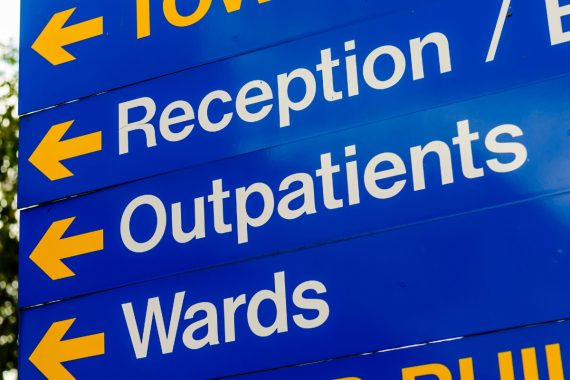Trust hands back all GP contracts due to ‘neighbourhood care’ shift

A community health trust is pulling out of all its GP contracts, stating the national shift towards ‘neighbourhood care’ as the reason.
Humber Teaching NHS Foundation Trust currently manages three GP practices under a mixture of GMS and PMS contracts, and across four surgery sites.
It announced this month that all three practices will be ‘transitioned’ to new providers due to ‘changes in the national primary care model’.
It said that the decision is ‘driven by ICB-led initiatives’ to ‘support joined-up neighbourhood care’.
Humber and North Yorkshire ICB said it ‘supports the Trust’s decision to divest primary care services’ which will ensure that ‘more joined-up care can be provided closer to home’.
The trust told Pulse the transfer process is still at an ‘early stage’ so was unable to confirm how the contracts will be awarded to new providers.
However, it expects all GP services to be transferred out of the community and mental health trust by the end of 2025.
A notice on the trust website said: ‘Humber Teaching NHS Foundation Trust is transitioning GP services at Market Weighton Practice, King Street Medical Centre in Cottingham, and Humber Primary Care in Bridlington to new providers due to changes in the national primary care model.’
‘The decision is driven by ICB-led initiatives to support joined-up neighbourhood care, shifting services from hospitals to community settings to improve funding pathways and enhance services for our communities and patients,’ it added.
All GP services will ‘remain at their current locations’ and patients will ‘automatically transfer to the new provider’, the trust said.
Currently, Humber Primary Care, which is made up of two surgeries, is run by the trust under a GMS contract, while King Street and Market Weighton are PMS practices.
The trust assured patients that the ‘transition will be carefully managed’ with a communications strategy to ensure they ‘stay informed’.
Humber Teaching Foundation Trust provides community and mental health services, as well as primary care, across Hull, Scarborough and other areas in the North East.
Humberside LMC CEO Dr Zoe Norris said the ‘main priority’ following this decision is to ‘ensure that the handover of patients is done smoothly and with very clear communication’ between the current staff the new contract holders.
She told Pulse: ‘No one wants to see contracts handed back, and I hope this won’t be the case, but there will need to be compromise and realism given the current climate and challenges for all those involved.
‘There are many motivated GP partnerships in the area who are keen to support the affected populations, and keeping the contracts within that cohort would be the best outcome for everyone involved.’
A spokesperson for NHS Humber and North Yorkshire ICB said: ‘This change ensures that more joined-up care can be provided closer to home. By aligning services with the national model, we are improving how care is delivered and making it easier for people to access the support they need.
‘We will continue to work closely with the Trust, as well as future providers, to find a solution for the long-term sustainability of primary care in Market Weighton, Bridlington and Cottingham, and to minimise disruption to patients.
‘The ICB supports the Trust’s decision to divest in primary care services in order to concentrate on the other services it provides.’
Last year, a community health trust in East London won four more APMS GP contracts, bringing the total number of practices under its control to ten.
At the time, the trust argued that this ‘union’ of GP practices demonstrated ‘alignment with the NHS England Fuller stocktake’ which in 2022 called for better integration between primary care and other NHS services.
Unlike the model in Humber, the East London Foundation Trust has a unique model whereby practices are run under APMS contracts won by the trust, rather than being subcontracted.
In 2023, two GP practices in Swindon that were handed to a hospital trust three years prior moved back to independent GP ownership.
The Health Foundation, a leading think tank, has previously argued that widespread implementation of trust-managed GP services will not fix the problems faced in the sector.
Researchers found there is limited evidence to show that integration of general practice with hospitals has a positive impact.
Portfolio careers
What is the right portfolio career for you?

Related Articles
READERS' COMMENTS [3]
Please note, only GPs are permitted to add comments to articles












group of unemployed GPs would be eager to take over and run the three surgeries. However, the contract is likely to be awarded to an insider from the PCN, who could double their £200k partnership profits by relying more heavily on nurses and physician associates instead of hiring new GPs.
If they are like some services I know they probably couldn’t reconcile the cognitive dissonance of saving money by dumping work and rejecting referrals back to GP practices with having to face the extra work this created in their own GP practices.
Just to add to JS , Partners benefitting dually from their own GMS contracts and then gaining separate APMS contracts to run solely for profit to exclude other GPs as far as possible via use of replacement practitioners using PCN funds are the accelerating scourge of the NHS with no added benefit for patients. Handing these to a new generation of unemployed GPs would be the appropriate next step as a matter of urgency.